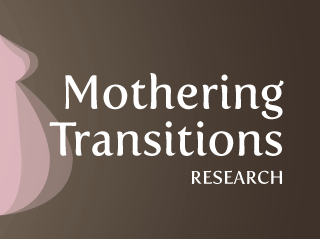Sustainable Telephone-Based Support for Mothers with Postpartum Depression
Objectives Phase 1: Develop an innovative, accessible and acceptable telephone-based peer-support intervention for mothers affected by postpartum depression that builds upon existing Telecare technology and research on telephone based peer-support;
Phase 2: (A) Test the effectiveness and acceptability of telephone-based peer-support intervention for mothers with postpartum depression via quasi-experimental methods, and (B) Adapt the program to ensure sustainable and effective telephone-based support is available to mothers with postpartum depression in New Brunswick, Canada.
Methods and Measures: Community-based participatory and integrated knowledge transfer approaches will be utilized throughout. In addition to the Decision-Maker Applicants, a Community Advisory Committee has been created to guide and advise the research team in all phases.
Phase 1: Individual (n=15-20) and group (n=1; 10-12 individuals) interviews with key stakeholders (e.g. Telecare resource personnel, government officials, service providers, national experts, and mothers affected by postpartum depression) will be used to develop an innovative peer-support program for mothers affected by postpartum depression that can be accessed via Telecare. Sample size will be based on data saturation (when no new themes arise in the data). Interview guides focusing on guiding principles, barriers and facilitators to implementation of peer-support via Telecare have been drafted.
Phase 2: A quasi-experimental design will be implemented to evaluate the effectiveness of the telephone-based peer support delivered via Telecare. Eligible, participating mothers will self-select for one of three groups: (1) Traditional support (i.e. referrals to physician and mental health), (2) Traditional plus peer support, or (3) Peer support. Assuming a medium effect (d=.25) and alpha of .05 suggests that 53 cases per group is necessary to achieve power of 80%. To account for attrition, 200 mothers will be enrolled. Administrative data will enable the collection of basic demographic information on Telecare clients who agree to participate in the study. Self-report data will also be collected at enrollment, midpoint (6 weeks after enrollment) and post-test (12 weeks after enrollment) on (1) measures of effectiveness including depressive symptoms, parenting, family functioning, child development and (2) clients’ program satisfaction and recommendations for change. The program will be adapted based on measures of effectiveness and on clients’ program satisfaction ratings and recommendations.
Analysis: Individual and group interviews will be audiotaped, transcribed, and subjected to thematic content analysis using a key category system of themes. Trained research assistants will code the data using inductive analysis, meet pre-specified criteria, use explicit coding rules, and maintain inter-rater agreement at 80%. Quantitative data will be analyzed with descriptive statistics and ANOVA for assessment of effect of intervention on depressive symptoms, parenting, family functioning, and child development and health.
Dissemination: Findings will reveal needed data about the efficacy of mothers’ preferred support interventions for postpartum depression facilitated by the use of Telecare. Results will be shared via traditional and non-traditional means including peer-reviewed publications, conferences, fact sheets, in-service workshops, research web sites, and a hosted conference for service providers. Integrated knowledge transfer efforts will ensure that community Decision Makers Applicants and Advisory Committee members are informed and involved at every step of the research process. These approaches will ensure effective and sustainable community-based telephone support will be available to women with postpartum depression in New Brunswick.
